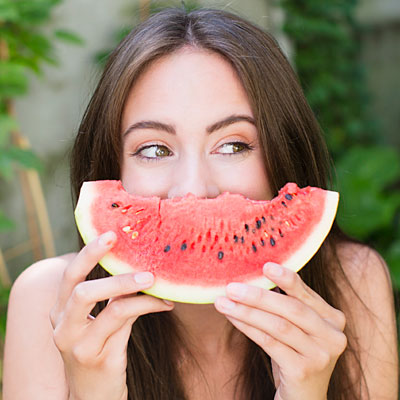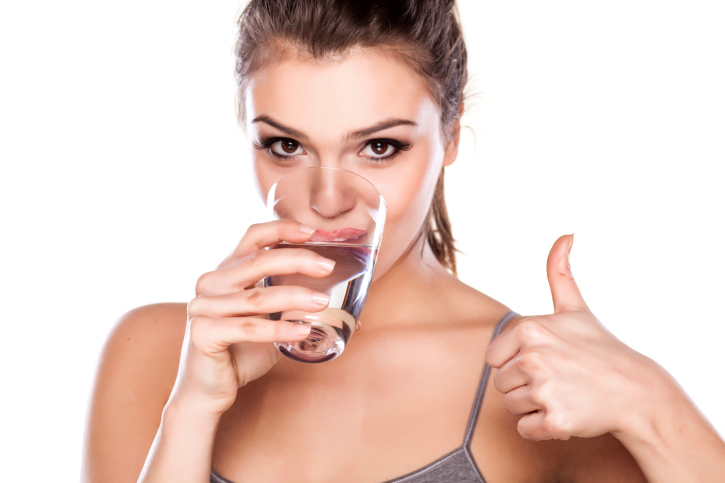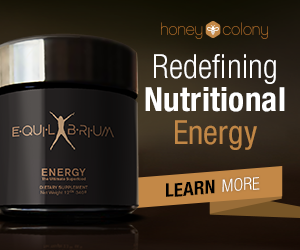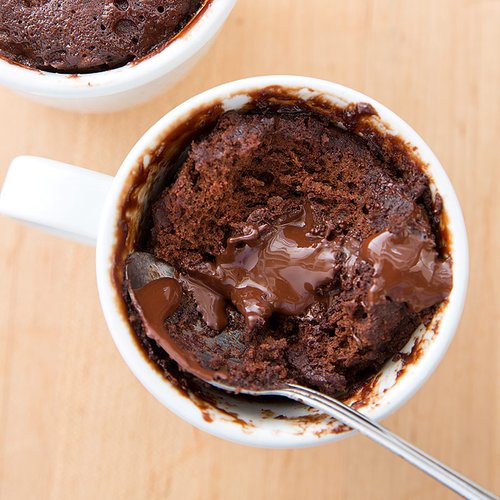6 Foods That Can Help Save Your Skin From Sun Damage

Just as an unhealthy diet can have a negative effect on your skin and health, a healthy diet high in antioxidant-rich foods can help protect your body, even from the sun. Since antioxidants help reduce inflammation and free radicals, loading your diet with them will go a long way against sunburn and skin damage as a result of UV rays. We connected with Dr. Christopher Calapai, D.O., a New York City Osteopathic Physician board certified in family and anti-aging medicine for his list of foods that help prevent sun damage.
To be clear, Dr. Calapai is not saying you should completely replace using daily use of sunscreen with food, but what you eat can offer additional protection for your skin. So if you’re looking for some ingestible sun protection, add these six sun-friendly foods to your next shopping list.
- Berries & stone fruits
Strawberries, blueberries and cherries contain high levels of vitamin C, which can reduce free radical damage caused by exposure to UV radiation. Vitamin C also stimulates collagen production, important for skin’s youthful appearance. As a bonus, cherries contain melatonin, which protects skin from UV radiation and repairs sunburn damage.
- Leafy greens
If it’s green and it’s got leaves, chances are it’s good for sun protection. According to one study, spinach, kale and swiss chard can reduce the risk of squamous cell skin cancer by 50%. Broccoli is also a good choice: it’s full of sulphoraphane, an antioxidant that helps your cells protect themselves against UV radiation.
Fresh herbs like parsley, basil, sage and rosemary are also packed with free radical-fighting, skin-protecting antioxidants. Not sure where to start? Check out our guide to cruciferous vegetables.
- Red & orange produce
The antioxidant lycopene has been shown to protect the skin against sunburn and is at least twice as effective an antioxidant as betacarotene when it comes to blocking UV light. It also helps rid the body of free radicals. Chow down on tomatoes, papaya, guava, red bell peppers and pink grapefruit. Watermelon is an especially good choice: it contains 40% more lycopene than tomatoes.
- Micro-algae
Spirulna has been dubbed “the next great superfood,” and for good reason. This micro-algea, along with chlorella, contains the antioxidant astaxanthin, which has been shown to protect the skin and eyes against UV radiation. It also fights free radicals and inflammation to prevent sun damage by preventing UV-induced cell damage.
If micro-algea isn’t exactly your cup of tea, you can find this powerful antioxidant in shrimp and salmon.
- Chocolate
As long as it’s dark chocolate you’re eating, you’ll be ingesting plenty of flavanoids, which can improve your skin’s ability protect against sunburns and other UV-induced issues.
Research found that people who ate about one ounce of high-percentage dark chocolate every day for three months could withstand twice the amount of UVB rays before their skin started to turn red, compared to those who didn’t.
- Green & black tea
The myriad health benefits of tea are well known, but it’s nice to know that the cups you’re drinking can also help protect against sun damage. Green and black teas are packed with polyphenols that can help stop cancer development by limiting the blood supply to the cancerous area. Green tea can even help prevent non-melanoma skin cancer by enhancing DNA repair.
New York City based Beauty Expert Jill Caruso of Fox Vein Care, has come up with the perfect Winter to Spring beauty tips to ensure vibrant skin.
Harsh weather conditions in the Winter can bring anyone’s skin woes, so as the first bud of spring blooms there are a few things to keep in mind. Jill is a Board Certified Aesthetic Nurse Specialist and her distinctive background in medicine, design, and skin esthetics gives her a unique approach when analyzing a patient's face and determining an individual treatment. She suggests the following for Winter to Spring flawless skin:
Ø Do not forget your sunscreen - This is not an option, but an essential everyday necessity, regardless of weather, to protect your skin from UV radiation. Also, contrary to popular belief, SPF ratings higher than 30 do not offer more protection and no sunscreen can block more than 97 percent of UV rays.
Ø Be sure to moisturize daily - Moisturizing your face will help you to look and feel younger, resulting in softer, more elastic skin… not to mention it will keep your skin hydrated.
Ø Wash your face every night - This is vital, as it removes not only makeup, but the dirt and dust that accumulates throughout the day. Outside elements as well as makeup clogs your pores with dirt, dust, smoke, etc., however, Jill suggests that soap-less cleansers are okay occasionally as they can act as cleansers with nondrying agents.
Ø Light Chemical peels can be great for the season change - There are lower UV levels during the winter, making it optimal for recovery and an ideal time to prepare your skin for the forthcoming spring season.
Ø Lastly, when it comes to makeup, less is more - People often tend to overdo it on the winter. Heavy foundation, mascara, and lipstick often ages women.
Jill Caruso RN, BSN, CANS
Certified Aesthetic Nurse Specialist

Jill Caruso is a Board Certified Aesthetic Nurse Specialist and one of only 220 practitioners with credentials from the Plastic Surgery Nursing Board.
Jill began working as a cosmetic injection practioner more than 7 years ago, and started working alongside Dr. David Fox at Fox Vein Care in 2014. She specializes in anti-aging treatments and clinical skin care. Using injectable fillers, neurotoxins, chemical peels, lasers, and Kybella, Jill softens the signs of aging. Her "less is more" philosophy and innate artistic ability, combined with a passion for personalized patient care allows her to give her clients the most optimal outcome; their most beautiful, natural self.
Jill holds a Bachelor of Science in Nursing from New York University and a Bachelor of Arts from the University of Pittsburgh. She also has earned a Certificate in Design from Parsons School of Design and holds a New York State Esthetics license. Her background in medicine, design, and skincare gives her a distinct approach when analyzing a patient's face and determining an individual treatment.
To stay abreast of the latest advances in anti-aging treatments and technologies, Jill regularly participates in medical and aesthetic meetings, workshops, and seminars. In February 2017, Jill attended the Aesthetic Blueprint with Dr. Kent Remington and Dr. Arthur Swift. This in-depth, immersive seminar was created exclusively for the top 1% of advanced injectors worldwide.
In October 2015, Jill was selected by Allergan (Botox, Juvederm, Voluma, Kybella, and Skin Medica) to work directly with world-renowned plastic surgeon Mauricio de Maio during his three-day Master Class in Manhattan. This opportunity was given to only one non-physician, practitioner in New York City. Learn more about Jill here https://www.facebook.com/jillcarusonyc/.
|
What Is The Mental Impact Of Being Fat Shamed?
New Jersey / New York Based Dr Frieda Birnbaum (http://www.doctorfrieda.com) a Research Psychologist, Psychoanalyst and Author is available for interviews in Studio, via Satellite or Skype.
Dr. Frieda Birnbaum Says:
- When pointing out to someone that you perceive them as being overweight and you do it in a condescending matter, it will likely have a negative effect on that person. Subconsciously, weight gain is can be associated with shielding & protection so when a person fat shames another, they may actually provoke that person into gaining more weight.
- According to The National Institute of Diabetes and Digestive and Kidney Diseases, more than two-thirds (68.8 percent) of US adults are considered to be overweight or obese. If people want to fat shame someone, they should consider doing it to the person in the mirror before anyone else.
- People react to criticism differently and a person who is fat shamed one too many times might actually decide to use that energy as a catalyst to transform their bodies. Often when a person makes the decision to reduce their weight, it's because they are no longer happy with their current body image. A person's decision to lose weight can also come from self love and wanting to attain optimal health.
- If someone in your life is overweight and you wish to convey your concern for them, always do it in a positive manner with lots of love and not in a negative tone. Your love and encourgement can have a positive impact that individual's mental health in the short & long term.
About Dr. Frieda Birnbaum
NY Metropolitan Based - Dr Frieda Birnbaum is a Research Psychologist, Psychoanalyst and Author of " Life Begins at 60: A New View on Motherhood, Marriage, and Reinventing Ourselves." She's an expert on depression, women's issues, and attaining happiness.
Dr. Frieda on WPIX 11 News
|
| Anti-depressant could be used to help people choose healthy food |
 |
Scientists have found a drug that treats depression could be used to help people eat healthily.
In a series of trials researchers found that when people took citalopram, which is used as an anti-depressant and for OCD, they were more likely to opt for healthy food.
Warwick Business School Professor of Behavioural Science, Ivo Vlaev, believes this could be a big development in tackling obesity, which has more than doubled worldwide since 1980 according to the World Health Organization who also calculated in 2014 that more than 1.9 billion adults, 39 per cent of 18-year-olds and over in the world, were overweight or obese.
“These research findings have implications for understanding and treating obesity and even eating disorders,” said Professor Vlaev.
“We found that citalopram increased the number of choices for healthy foods made by people when compared to a placebo. Our trials suggest that after taking the drug people are more likely to make decisions on what food to eat based on health rather than taste.
“It appears to give people the long-term focus needed to consider how food will impact on their health, rather than the short-term decision to go for what tastes better.”
In the paper Serotonin enhances the impact of health information on food choice Professor Vlaev, Molly Crocket, of the University of Oxford, Luke Clark, of the University of British Columbia, and Ulrich Müller and Trevor Robbins, of the University of Cambridge, gave a pill to 27 adults and asked them to choose between pairs of snacks shown on a screen, sometimes they were two healthy options, sometimes two unhealthy foods and sometimes one of each.
They took a single dose of atomoxetine, and then repeated the task but this time taking citalopram, and then a placebo, without them knowing what they were taking.
Citalopram works by lengthening the time serotonin – a chemical that delivers messages to synapses in the brain known as a neurotransmitter – is held by the synapse in the cell, so prolonging its action. The researchers tested the hypothesis that serotonin is involved in value-based decision-making and promotes a focus on long-term goals in dietary choice.
Atomoxetine boosts noradrenaline – another type of neurotransmitter – in a similar way, but there is evidence noradrenaline has a distinct effect on cognitive flexibility and control.
The researchers found that when taking citalopram 60 per cent of the participants’ choices were healthy, while just 45 of them were healthy when taking the placebo. The number of healthy choices made taking atomoxetine was not significantly higher.
By rating the foods on health and taste beforehand, the trials also revealed that subjects’ choices while on citalopram were for health reasons as they more frequently selected the food that had the higher health rating, while on the placebo it was not even a consideration.
“This shows that serotonin is not about controlling impulsivity, but it helps people to have a more long-term focus on their decision,” said Professor Vlaev.
“Citalopram helps to give a boost of serotonin, which is a neurotransmitter involved in the regulation of cognitive processes.
“Our data tentatively suggests serotonin amplifies the importance of health considerations in consumption decisions, perhaps via enhancing a focus on, or the value of, long-term outcomes.
“The lack of a direct effect of citalopram on health or taste ratings of food items also suggests serotonin promotes the integration of health information into choices rather than influencing the health ratings themselves.”
Professor Vlaev believes beyond the connotations to do with food, this research could have an impact on addictions and impulsive behaviours.
“Citalopram offers the potential for a better understanding of consumer food preferences and behaviour and why people still choose unhealthy snacks despite knowing they will be bad for them in the long-term,” he said.
“Also, serotonin-enhancing drugs like citalopram could be given during the initial stages of interventions aimed at changing the lifestyle of overweight and obese patients.
“Indeed, using drugs like citalopram that enhance the long-term goals in value-based decision-making could be used in other situations, like addictions and impulsive behaviours or be used to support psychological therapies for mental health conditions.”
|
SPRING INTO SPRING!! 7 Ways to Be More Optimistic

We set the clocks ahead for daylight savings and many of us woke up to a darker sky feeling sluggish thanks to a one hour loss of sleep. If you hit the snooze, pulled the covers up over your head still feeling bummed out about your waistline, bank account, career or love life, you’re not alone. Despite more daylight our worries will still be there. So how do we spring into spring, a season that’s all about new beginnings and rebirth? For practical ways, to cultivate optimism in our lives we turned to Dr. Sanam Hafeez, a NYC based licensed clinical psychologist, teaching faculty member at the prestigious Columbia University Teacher’s College and the founder and Clinical Director of Comprehensive Consultation Psychological Services who shares these tips and tools.
1. Focus on the good.
“A daily exercise I often have my patients do is keep an appreciation or gratitude journal. When you focus on all the things to be happy for in your life then more great things come. Think generally and use your senses. What do you appreciate seeing, smelling, touching, tasting, listening to? Write it down. Within a few weeks you'll train the mind to pivot to an appreciate thought when a negative thought comes,” explains Dr. Hafeez.
2. Make plans.
Making plans to see relatives, to see a new exhibit a movie or to travel gets our mind moving forward towards something positive that we can be hopeful and optimistic about. Dr. Hafeez suggests making plans to do 3 things per month for the next 3 months. “Choose things that you know will bring you joy and then go do them! Feeling excited about what is coming and talking about how fun it will be keeps us optimistic and forward moving,” says Dr. Hafeez.
3. Control what you can, delegate the rest!
We get pessimistic and worry about the worst possible outcomes when we realize that we cannot control every detail. This leads to anxiety and an even stronger feeling of having to control conditions, and even others. According to Dr. Hafeez, this is a trap. “Figure out what needs to get done. What actions you can take. Then let go of anything else that is beyond your control with faith that everything will turn out fine. Envision the desired outcome,” advises Dr. Hafeez.
4. Limit your news watching and avoid it before bed.
“There is a very common pattern I see people falling into,” says Hafeez. “People awaken and immediately reach for their smartphone for news headlines. They then turn on the TV news as background noise. They listen to news in their cars, have news alerts going off on their phones all day, catch the evening news and then the 11pm news before bed. No wonder they're less optimistic! What you choose to look at will impact your mood. Remember, good news doesn’t get ratings,” she adds.
5. Don’t snooze. Instead just breathe.
When the alarm goes off give yourself a few minutes to just lie there, eyes closed focused on your breathing. Breathe in counting to 4 and then breathe out. Do a mental scan of your entire body from head to toe thanking your cells for restoring you as you slept. “Deep breathing is a form of meditation and in the morning, you have a small window of opportunity to decide what kind of day you want it to be,” says Dr. Hafeez.
6. Distract yourself with something that requires focus.
The key here is to pick something you truly enjoy doing and do it daily. It can be painting, coloring, yoga, a 20-minute walk or jog, listening to music and dancing around your living room. “When you are fully engaged in something, you can’t ruminate which leads to pessimism,” explains Dr. Hafeez.
7. Make feeling good top priority.
When you commit to feeling good you instantly start to think more optimistically. According to Dr. Hafeez, when you’re mindful of your own negativity and shift to a better feeling positive thought you feel powerful. You’ll feel like you can conquer anything when you can master your own mindset.
Dr. Sanam Hafeez PsyD is a NYC based licensed clinical psychologist, teaching faculty member at the prestigious Columbia University Teacher’s College and the founder and Clinical Director of Comprehensive Consultation Psychological Services, P.C. a neuropsychological, developmental and educational center in Manhattan and Queens.
Dr. Hafeez masterfully applies her years of experience connecting psychological implications to address some of today’s common issues such as body image, social media addiction, relationships, workplace stress, parenting and psychopathology (bipolar, schizophrenia, depression, anxiety, etc…). In addition, Dr. Hafeez works with individuals who suffer from post-traumatic stress disorder (PTSD), learning disabilities, attention and memory problems, and abuse. Dr. Hafeez often shares her credible expertise to various news outlets in New York City and frequently appears on CNN and Dr.Oz.
Connect with her via twitter @comprehendMind or www.comprehendthemind.com
Brie Larson's Red Carpet Secret Revealed!
Oscar winner Brie Larson's beauty secret for the red carpet before the 89th. Academy Awards: Celebrity facialist, Tracie Martyn. Traci Martyn flew to Los Angeles to prep her skin with her signature trademarked Red Carpet Facial®. It uses the most advanced anti-aging technology available to produce fast results without any downtime.
The restorative and relaxing Red Carpet Facial® treatment is beyond wrinkle-reducing; it helps to lift, firm and contour the jawline, cheek bones and delicate eye area. It encourages collagen formation through suppressing its breakdown and energizing the skin, while improving elasticity to defy gravity. Synergy between the proprietary mild current channeled onto the skin through Tracie's own Resculptor beauty machine, amber and red LED Light and her age-defying, high-performance all-natural skin care line that combines plant based cosmeceuticals and vitamins with organic botanical extracts and essential oils, results in dramatic immediate effects as seen with Larson as well as cumulative results as seen with many of Martyn's A-list clientele who have visited her spa for over a decade. The exclusive combination is "light years" ahead of any other non-invasive, anti-aging approach.
Honey Colony is Having - 20% Off Superfoods

Honey Colony is Having - 20% Off Superfoods. I reviewed their Equilibrium product a while ago on my blog. Definitely worth checking out.
Click here to see what's on sale:
20% Off Superfoods
Hey guys! If you have protein powder in your diet this week and are craving a sweet treat give this recipe a try!
Ps this recipe was sent out in my newsletter so if you aren't subscribed makes sure you do! www.trainitright.com either click the popup or scroll to the bottom.
Healthy Chocolate Lava Cake

This recipe is for those of you who desperately are craving a sweet treat but know enough not to stray too far off of your diet. If you do IIFYM you can easily fit this into your macros.
1 Scoop Protein Of Choice
1 tsp cocoa
1 tsp Baking Powder
1 tbsp PB2 (peanut butter without the fat)
1 Packet of stevia or liquid stevia drops
Almond Milk/Cashew Milk (amount will vary depending on protein)
1. Mix all of the dry ingredients together into a bowl or mug.
2. Add Almond milk slowly and stir until brownie batter is achieved.
2. Microwave 1-2 minutes until there is only a small centre of "goo" in the middle. Think lava cake. I suggest checking every 30s to see.
3. ENJOY! But beware it is addictive!
Positive Patient Experience Yields Health Care Benefits

e-Patient Services enhance patient experience leading to better health outcomes, productivity
When Canadians have access to their health information, they are better equipped to be an integral part of their health care team. Access to health information and other consumer e-services is leading to some important health care benefits for Canadians and clinicians according to a body of international and Canada Health Infoway (Infoway) research.
"Consumer digital health solutions, also known as consumer e-services, are designed to improve Canadians' access to their health information, encourage better communication with health care providers and empower them to be more involved in their care," explained Michael Green, President and CEO at Infoway. "Consumer health solutions are one of Infoway's priorities because we know that improving the patient experience improves patient health and will unlock value for the health care system."
Consumer digital health solutions, whether online or through mobile devices, include: e-booking, which enables Canadians to book and manage their appointments online; e-visits which provide the ability to consult healthcare providers via secure email/messaging or videoconference; e-prescription renewal or refill which gives the ability to request a medication renewal or a refill online; and e-views which provide access to a patient's health record including clinical information such as laboratory test results.
According to the United Kingdom's National Health Service (NHS) report, Feeling Better? Improving patient experience in hospital, organizations with strong emphasis on providing high-quality patient experience have found that it is linked to better health outcomes and improved productivity and efficiency, which has been demonstrated in a number of Infoway projects.
Benefits for Canadians
- Patients or caregivers who had access to their heath information through a patient portal felt:
- that knowledge of their health increased (78-94 per cent)1,2
- more confident managing their health (78-95 per cent)1,3
- the tools helped them feel more involved in their health care (77 per cent)2
- that access to their health information allowed them to have more informed discussions with their doctor (93 per cent)1
- make better use of their time with clinicians (83 per cent)1
- Improve the relationships between patients and their health care providers 1,2,9
- Save travel time by seeing a doctor virtually (e-visits) (98 per cent)8
- Avoid work absences through e-visits (87 per cent)8
- Patients were more likely to renew/refill prescription on time by requesting renewal/refill through a secure online system (78 per cent)9
Benefits for Clinicians & the Health System
- Clinicians reported an improvement in their therapeutic relationships with patients (60 -75 per cent)4, 9
- Clinic/Clinician productivity value
- Decrease in clinic call volume (73-90 per cent)1,6
- Reduce requests for health information or health history information (61 per cent)5
- Decrease in no-show appointments (43 per cent)7
Canada Health Infoway continues to focus on investing in consumer digital health solutions that empower patients to better manage their health and improve access, communication, and collaboration between patients and their health care team.
Visit Infoway's website to learn more about Consumer Health e-Patient Services or Infoway's digital health investment projects nationwide.
About Canada Health Infoway
Infoway helps to improve the health of Canadians by working with partners to accelerate the development, adoption and effective use of digital health across Canada. Through our investments, we help deliver better quality and access to care and more efficient delivery of health services for patients and clinicians. Infoway is an independent, not-for-profit organization funded by the federal government.
1 Impacts of Direct Patient Access to Laboratory Results – Final Report
2 Nova Scotia Personal Health Record Demonstration Project - Benefits Evaluation Report
3 Epic EHR Program: MyChart Consumer Health Solutions Benefits Evaluation Report (Pilot)
4 Holland Bloorview: Connect2care Benefits Evaluation – Results and Final Report
5 Ontario Shores' HealthCheck Patient Portal Benefits Evaluation Report
6 Group Health Centre: myCARE Benefits Evaluation and Final Report
7 Adoption, Use and Effects of an e-appointment System: Results of a Quebec Showcase Project
8 Virtual Visits in British Columbia: 2015 Patient Survey and Physician Interview Study
9 Health Quality Innovation Collaboration (HQIC): miDASH, Consumer Health Solution Benefits Evaluation
SOURCE Canada Health Infoway

Artificial Sweeteners
The following is a very simplified overview of my five main issues with artificial sweeteners.
Re-enforces the craving for sweets and overeating. Sends a very strong signal (stronger than sugar) to the control centers in the brain to remind and push to consume sugar because it creates pleasurable feelings. What ends up happening is people end up craving sugars even more and end up getting it eventually and when they do, it’s more than they would have eaten had it not been for the artificial spike. Eliminating artificial sweeteners from your contest prep diet honestly makes dieting 100 times easier because you’re not providing a constant reminder to eat more sugar.
Changes the way foods are metabolized. Research confirms that artificial sweeteners can negatively impact the way the body processes and metabolizes certain foods. So even if you are eating healthy, your body may not be processing the nutrients appropriately and partitioning them accordingly how they should be. (i.e. more gets potentially stored as fat, not muscle cells). Research has also suggested artificial sweeteners can impair glucose metabolism.
Creates an artificial insulin spike. Mixed research on this but enough in my mind to warrant mentioning it. Artificial sweeteners can send a signal to the body that sugar has just been dumped into the blood. In some individuals, this can actually cause the body to produce insulin (a storing hormone). While in contest prep, we try to suppress insulin with the exception of very specific times. Stimulating it’s release multiple times through the day is not the best way to get shredded.
Long term use linked to changes in the brain-metabolism balance. Artificial sweeteners can create an energy imbalance that mimics the actions of fasting on the brain – which can be highly detrimental to the metabolism. The pathway here is the AMPK causing certain cells to produce NPF – a peptide that promotes hunger.
Studies have correlated artificial sweeteners with weight gain and metabolic syndrome. While correlation is always up for debate, it shouldn’t be just overlooked.









